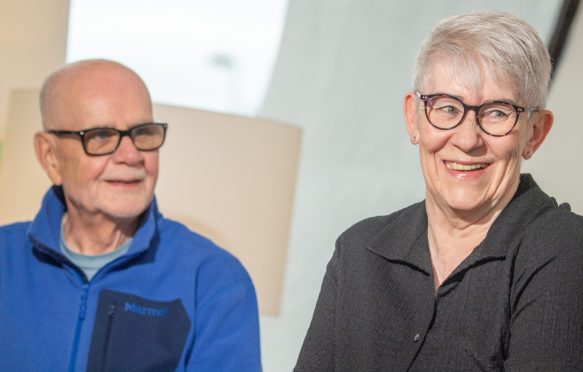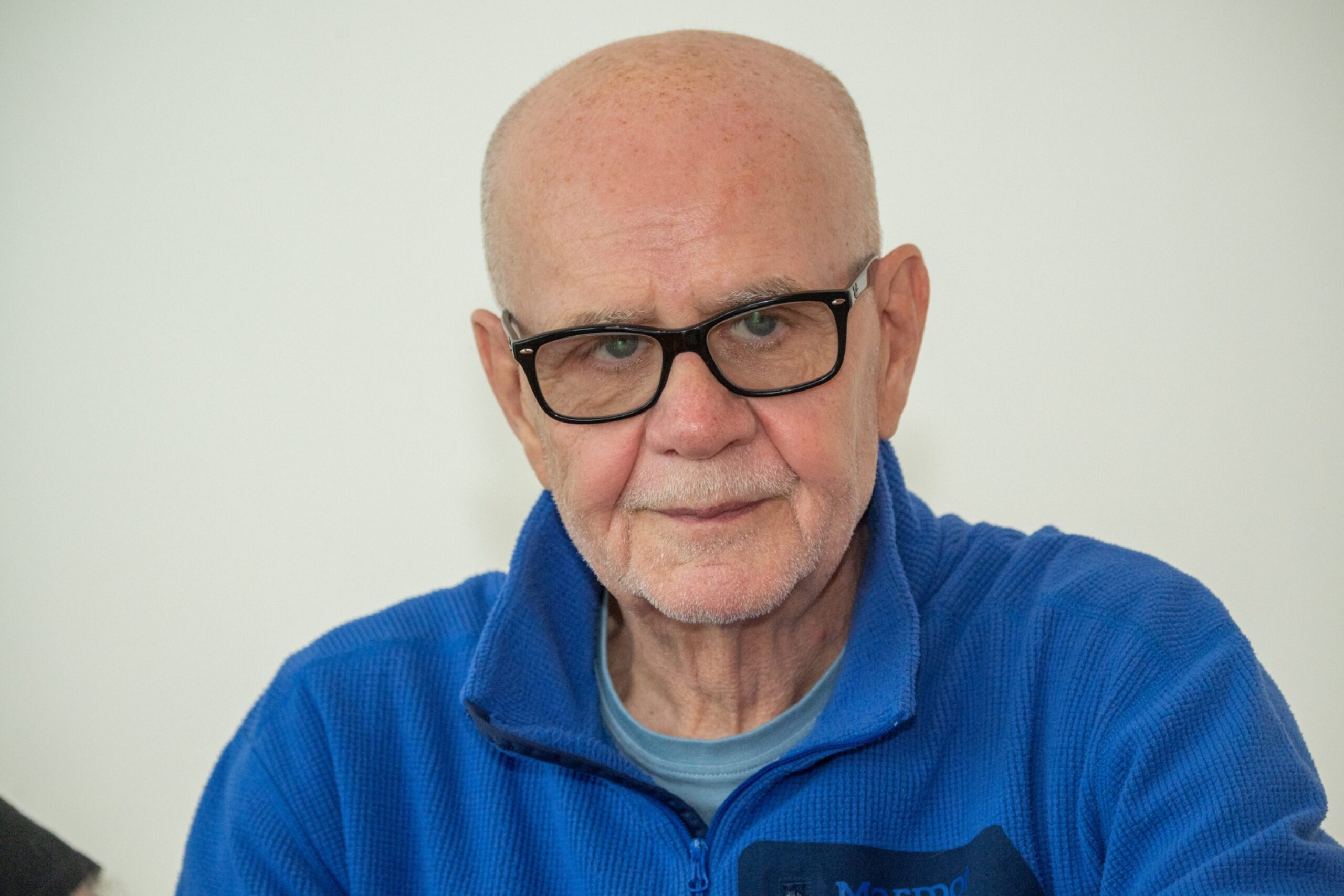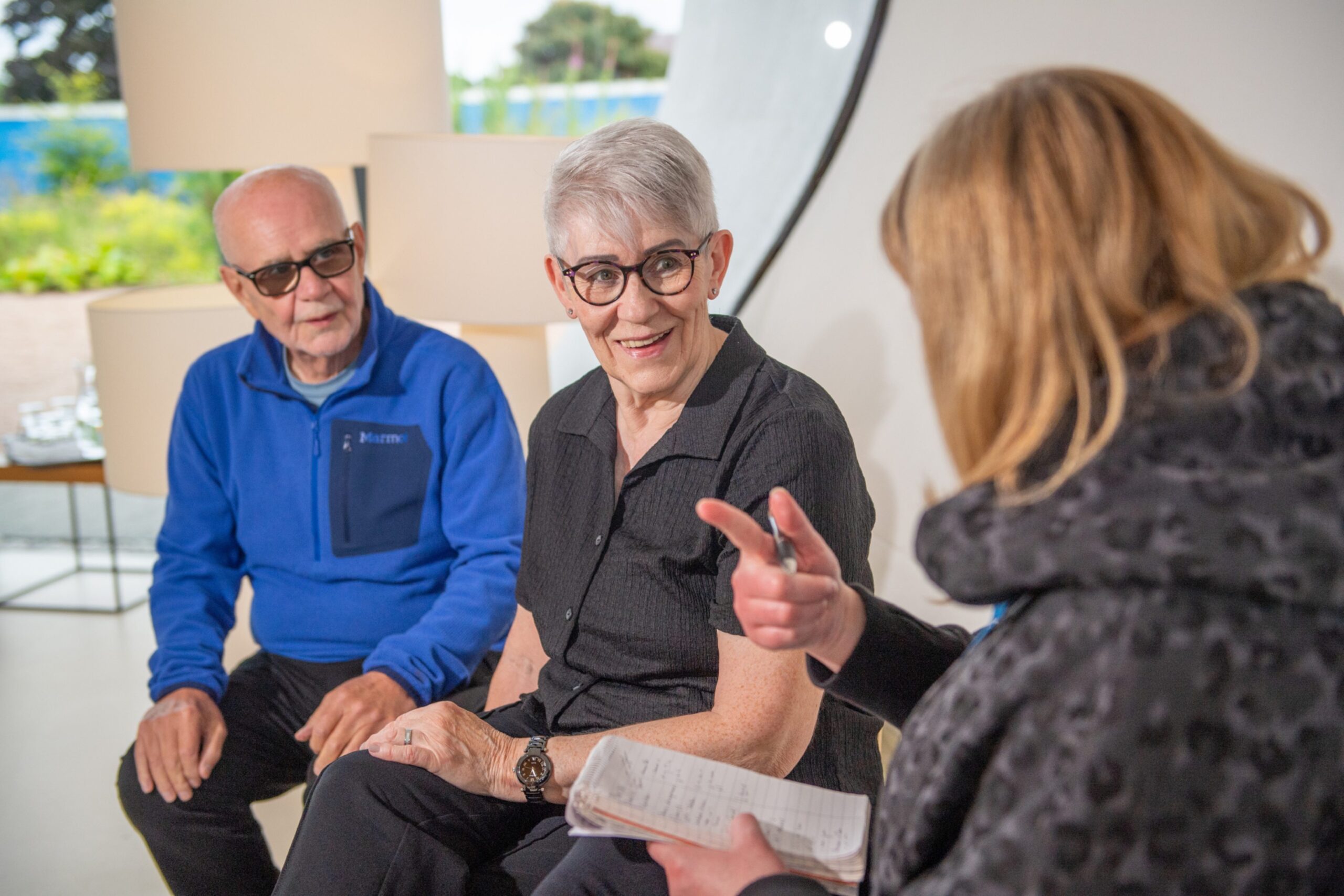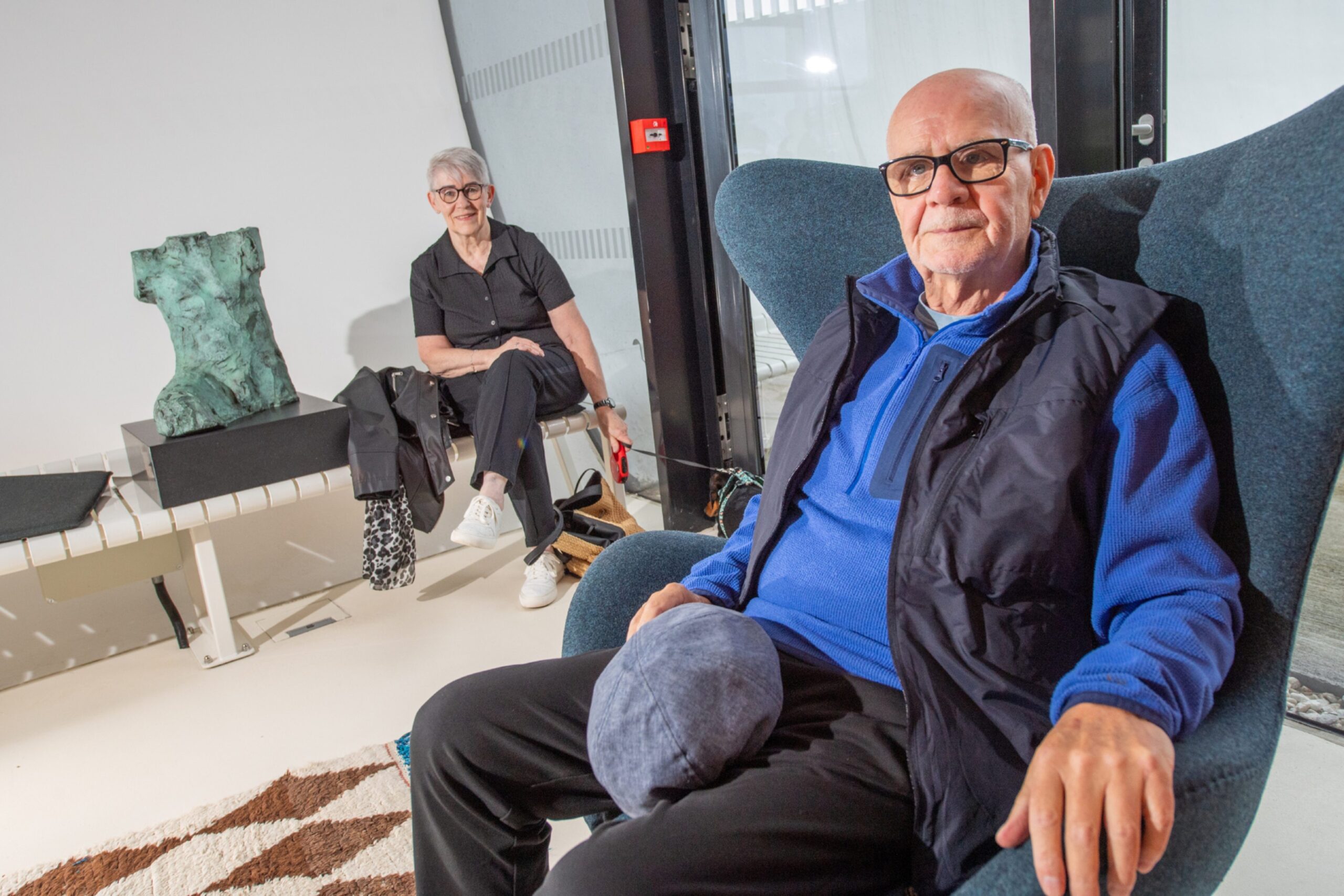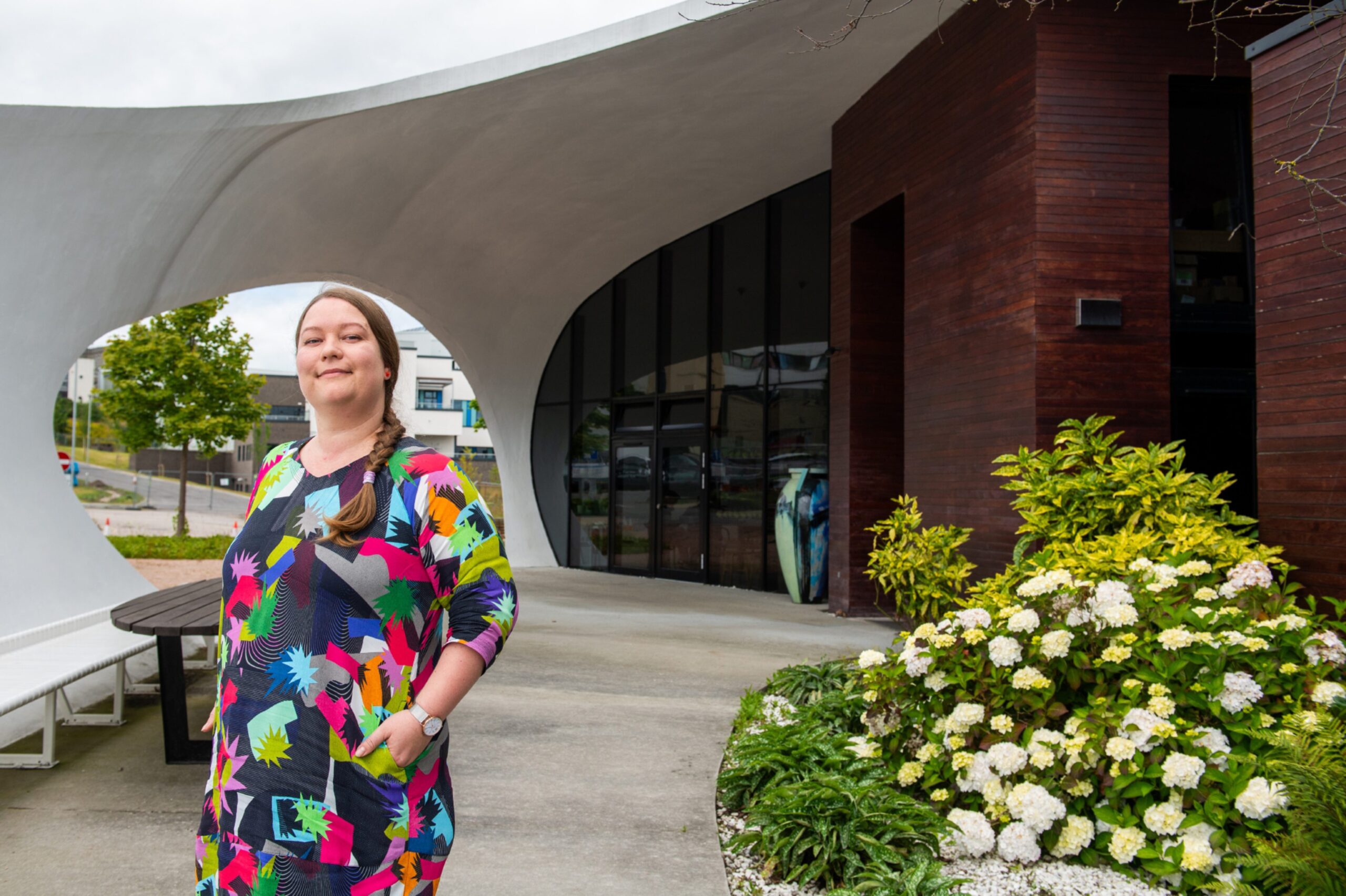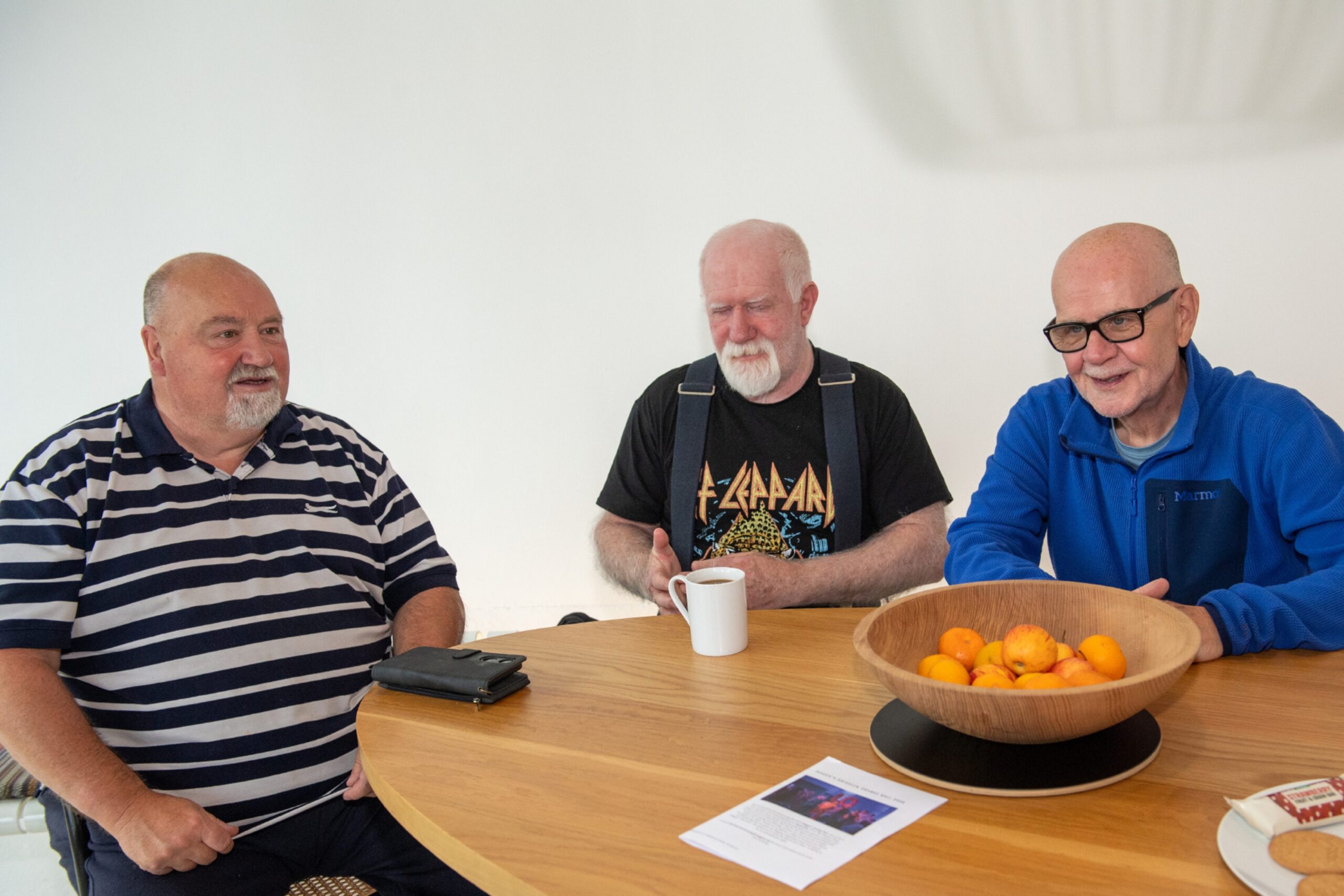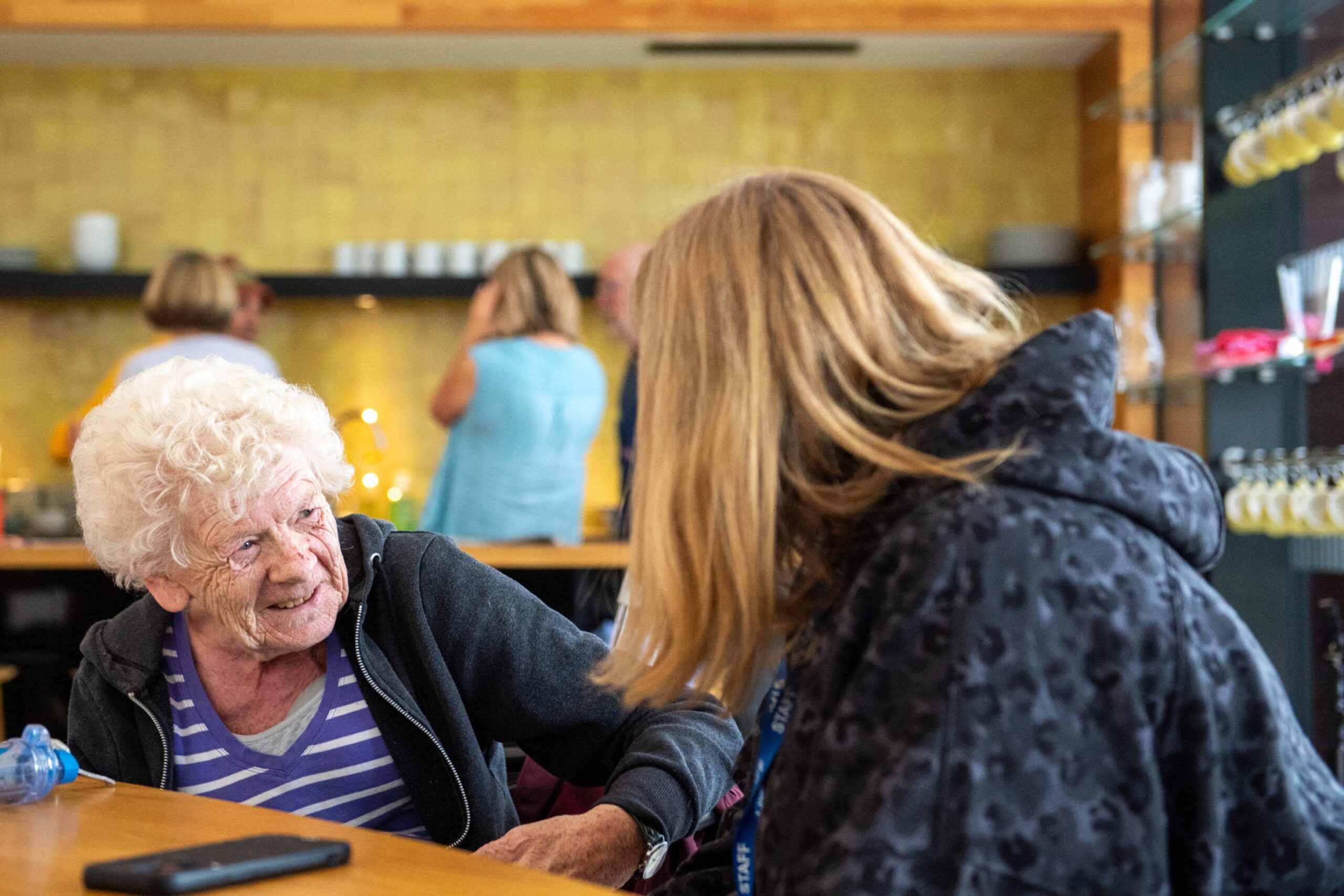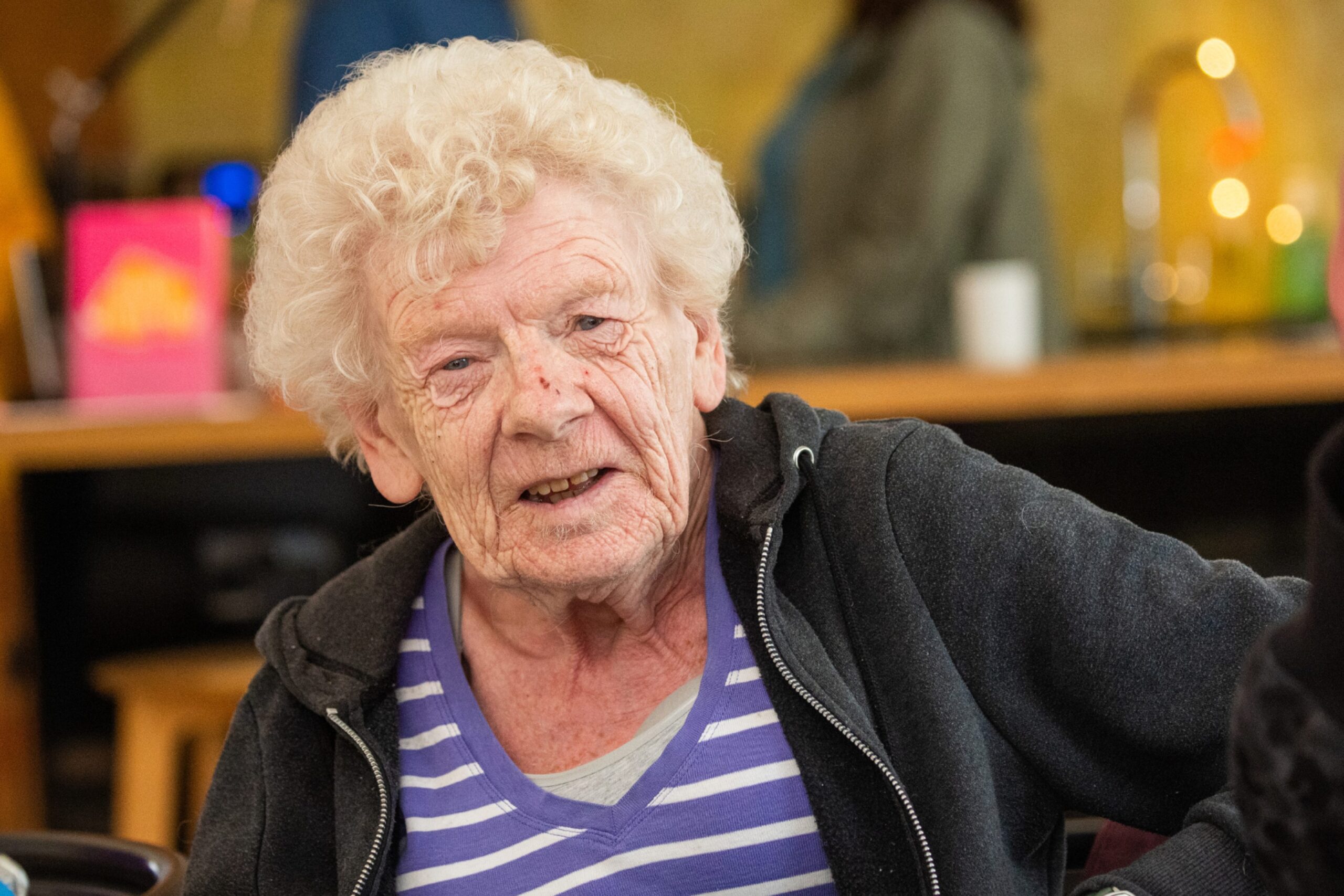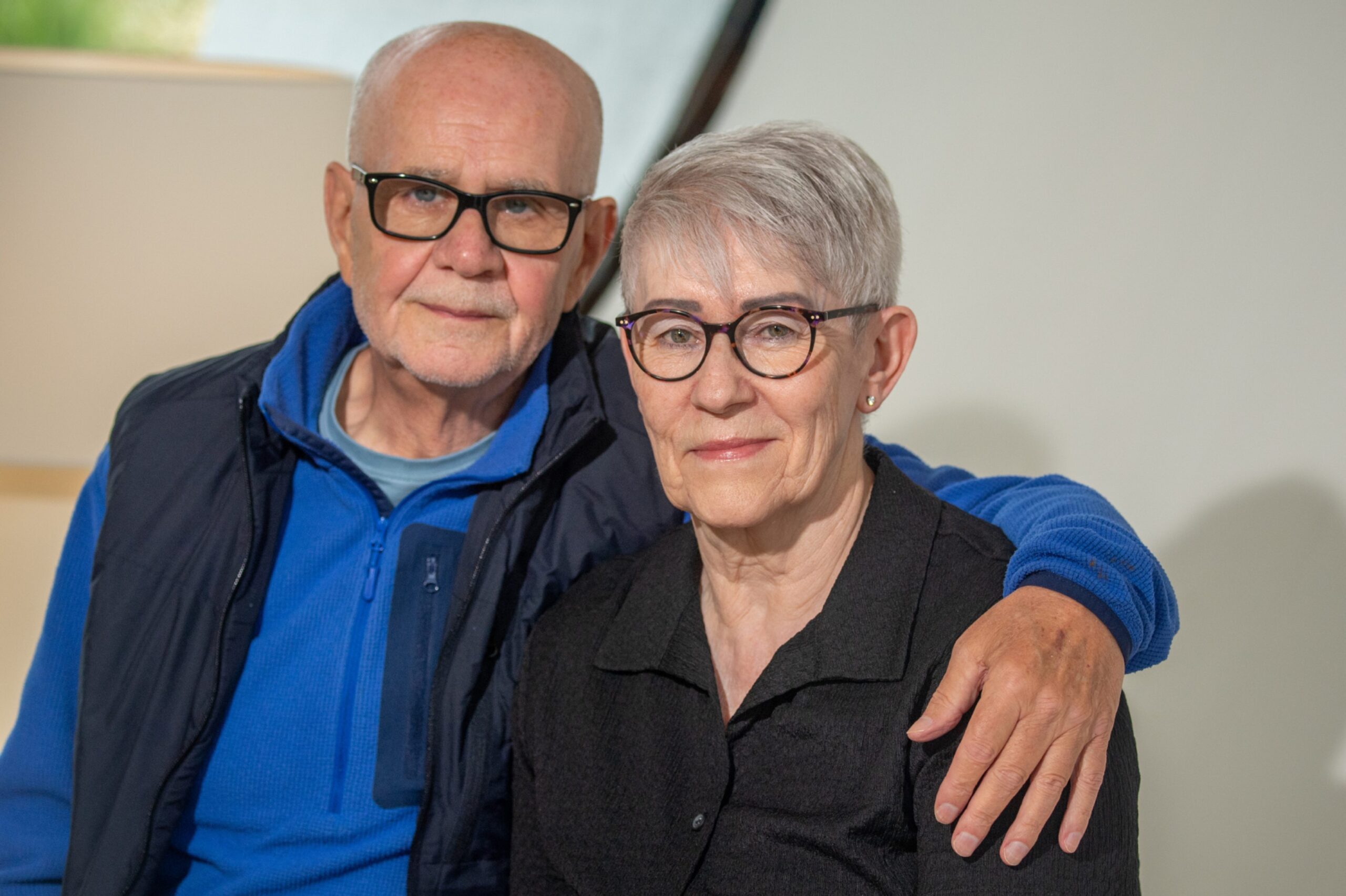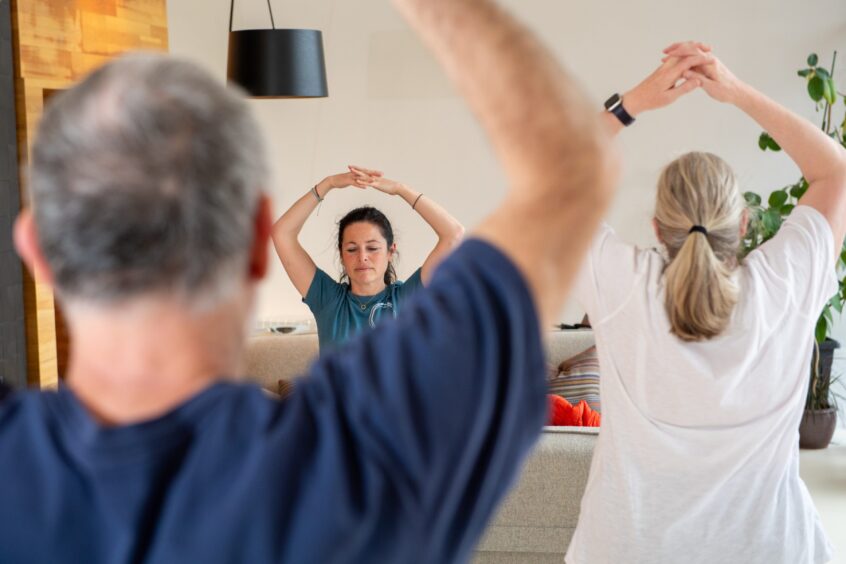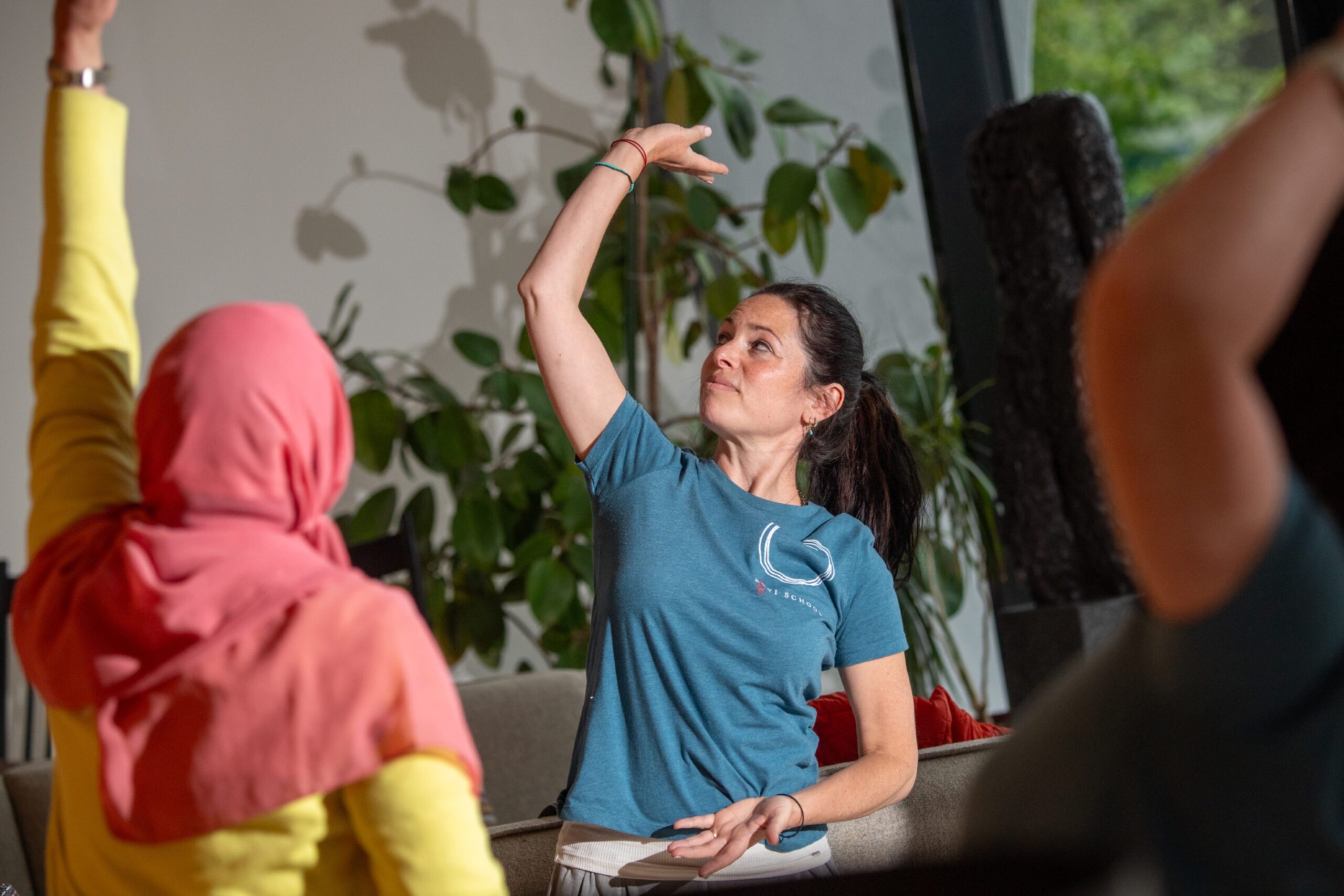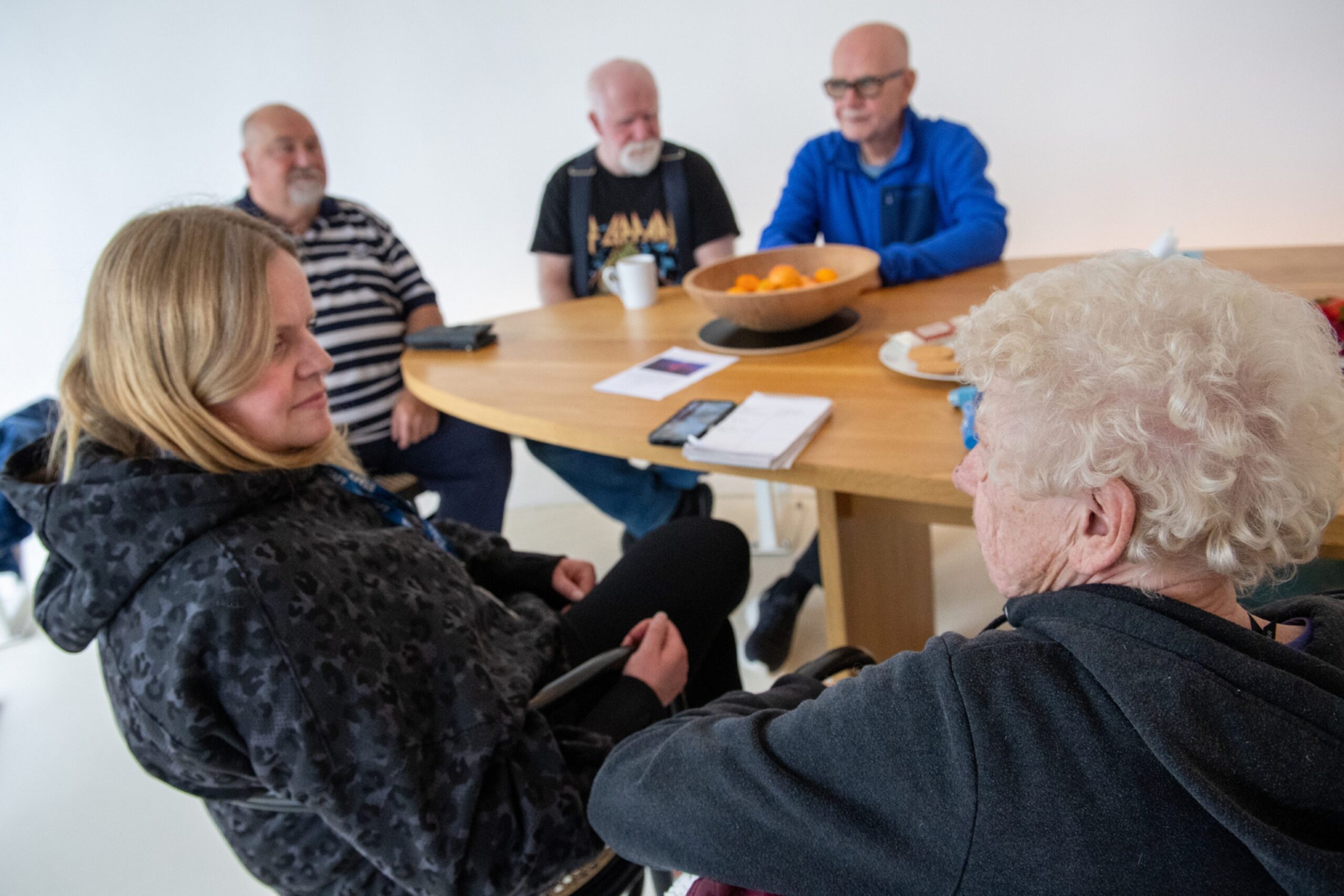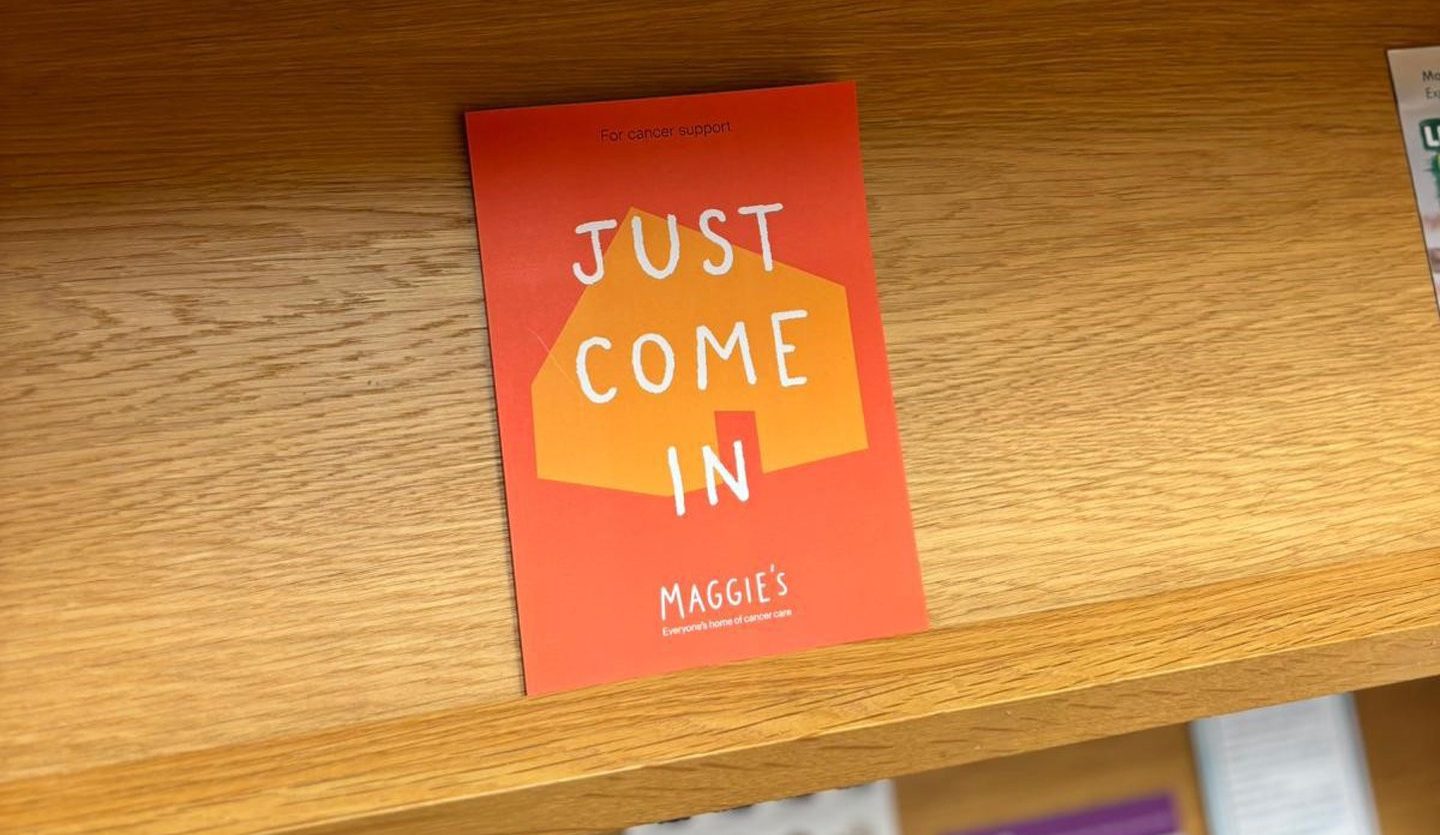Cancer: it’s the club nobody wants to be in, and the news we dread for our loved ones. But for those of us who’ve been given that six-letter diagnosis, we quickly learn it impacts more than just ourselves. Which is exactly where Maggie’s Aberdeen comes in.
Three years on from my own thyroid cancer surgery, I donned my leggings and comfy hoody to drop into Maggie’s Aberdeen, the place known for its holistic care, expert advice and the “friendliest kitchen table” in the Granite City.
The people I met, and the stories they told me, were truly remarkable and helped me think afresh about my own cancer experience.
The justice of the peace who was taken aback by cancer
This time last year Dennis Nicol had no intention of being a weekly visitor to Maggie’s Centre in the grounds of Aberdeen Royal Infirmary.
The retired justice of the peace and founder of Aberdeen charity Instant Neighbour was in Cafe Nero when all that changed.
Speaking to him in the atrium of the pebble-shaped building, designed by Scandinavian architect Snøhetta’s Kjetil Thorsen, light from the vast windows catches his watery eyes.
“I never used to be emotional at all,” he says. “It doesn’t take much to push those buttons now. Cancer does that to you.”
‘A tumour the size of an egg’
It was in July 2023 during a regular meet up with his friend that “the world stopped” for 76-year-old Dennis.
After recurrent heartburn he had visited his doctor. Then referred to the hospital “they put down a scope” to try and determine the cause of constant reflux.
“I’ll never forget it. The phone rang when I was with my chum. The doctor said I had a tumour the size of an egg in my stomach.
“I fell to pieces.”
“By the time he got home he was in an awful state,” said Pat, Dennis’ wife.
“I’d never seen him like that.”
‘Maggie’s was there for us both’
Months into treatment and sinking deeper into “a kind of depression” Maggie’s was suggested to Dennis.
In November he and retired hairdresser Pat decided to come for a visit.
“I didn’t know what to expect,” Dennis says. “I was told there was a light exercise class but at that point I was barely able to be on my feet for five minutes.
“We came along anyway and I’ve never looked back.”
Part of Dennis’ treatment involved the removal of his stomach. Gruelling chemotherapy followed.
“No part of the family is untouched when cancer is involved. I can’t even express to you the things Pat has seen and done for me. When chemo didn’t agree with me I was left in a state. Pat cleaned me up…”
He takes a breath to collect himself then continues, “Maggie’s was there for her too.”
How cups of tea are the secret weapon at Maggie’s Aberdeen
The idea of Maggie Keswick Jencks, who died following recurrent breast cancer, Maggie’s combines architecturally beautiful spaces with all the resources needed to make “cancer more manageable.”
The Aberdeen base – identifiable as “that big white spaceship looking building” – sits within the grounds of the ARI.
Surrounded by landscaped gardens including outdoor seating, it’s like walking into a Scandinavian spa or an upmarket Ikea.
Every visitor to Maggie’s is greeted by a smiling volunteer on hand to make a cuppa.
“All the best conversations take place around the kitchen table,” centre head Vera Schroeter explains.
Also a clinical psychologist, she adds: “It’s often a huge step for people to come here for the first time. Visitors are sometimes reluctant to speak with advisors or to take part in a class. But over a cup of tea the world can be put right again.”
I thought it was too late for me and my own cancer journey to enter Maggie’s, but I was wrong
I fully understand the trepidation to cross the Maggie’s threshold.
Diagnosed with papillary thyroid carcinoma in the pandemic, limited services were available to me. By the time things returned to near normality I felt I had passed the point where needing help was acceptable.
“Ach it’s never too late to come in here,” I’m reassured by Graham Norrie.
The 61-year-old has been coming to Maggie’s for five years.
“Anybody that knows me would say I’m a big guy, rufty tufty… but cancer near ruined me. It was my wife, who is a chemo nurse, who told me to try Maggie’s. She knew I needed it, even if I didn’t.”
Exercise classes are lifeline for 76-year-old Diane
But with hindsight, he says it’s the best decision he’s ever made.
“It brought me out of myself. Just being here… with other people in the same boat. It lifted me up out of a slump.”
We chat around a huge, communal table. Biscuits and fruit are dotted across the surface and the kettle is never not boiling.
78-year-old Diane Skinner was diagnosed with breast cancer in 2019.
“I live on my own,” she tells me while holding on to my arm. “The Friday exercise classes have been a lifeline. And not just because of cancer…”
Maggie’s is a much-needed constant
The gentle circuit class for all abilities took place just as I arrived.
With each lap of the building I noticed a different configuration of couples.
Those walking together to begin with switch later on. There’s audible laughter and encouragement heard as they go by.
Back around the table, conversations turn to Aberdeen’s bus gates. Just as things become heated, Diane tells me she will be “getting moved” soon.
Thanks to RAAC in her Balnagask Road home in Torry, she needs to be rehoused.
“I don’t know where I’ll be going to,” she says. “It’s awful really. People are being taken out of the only place they know. I’m glad I have Maggie’s to come to.”
‘Maggie’s saved my life’
It’s clear this constant and predictable source of serenity, amidst the wrecking ball that is cancer, is what brings people back week after week, month after month.
“Maggie’s saved my life,” Dennis tells me. “Simple as that.”
“And it helped me too,” chimes Pat. “I look forward to coming here each Friday. I join in the exercise class and there’s always help on hand if we need it.”
Keen to know exactly what’s available I’m introduced to Donna – who advises on what benefits can be tapped into for those on a cancer or post-cancer journey. And I meet Astryd, a health psychologist who offers one-to-one support, as well as running relaxation classes.
Something for everyone at Maggie’s
Maggie’s provides something unique in that it’s staffed by cancer specialist nurses, expert clinicians, and volunteers, all of whom genuinely know what visitors are going through.
In fact, a jam-packed timetable exists offering everything from specific support groups (such as one for head and neck cancer and another group for colorectal issues), to nutrition help, a memory and attention course and family and friends groups.
One of my kitchen table friends says he’s sampling everything he can.
“The wife says I need it,” he jokes.
The centre ebbs and flows between quiet times – where I took advantage of a comfy sofa and a flick through “Architecture of Hope” – a book cataloguing Maggie’s buildings across the planet – and noisier spells, abuzz with chatter as classes begin and end.
From my spot in the corner, on a cushion, I watch a Qigong class.
All my nerves about visiting Maggie’s faded away
As men and women alike utilise the open, airy space to stretch and move under the expert tuition of Tina Faulkner Elders, I’m offered more tea.
“How have you found it?”
“I’ve loved it,” I tell my attentive tea-making friend who is adamant I should also sample a biscuit.
“It’s a special place… like being enveloped in a hug,” he adds.
I have to agree. Any nervousness I had about visiting faded away as the day went on.
“We like to think the building does some of the work,” Vera says. “Just being here helps a little.”
But such support comes at a cost. Fundraising manager Richard Stewart tells me the annual budget is £631,100, raised largely by the good will of people who have used Maggie’s centres or who have seen family members benefit from it.
Every person I’ve chatted with expressed a desire to “give something back.”
Life, loss and togetherness
After sampling a relaxation class – where I all but nodded off – I find myself back at heart of Maggie’s – the well-used kitchen table.
“Are there any downsides to coming to a place like this?” I ask.
“None,” Graham says, “except when friends don’t come back.”
And just like that we all remember the common thread that has brought us all together: cancer.
“You can be here for weeks on end and see the same faces. Some people tell you what their prognosis is, others keep it to themselves. So when you don’t see one of your chums you worry. You do,” adds Dennis, who has six grandchildren. “If they don’t come back you wonder what’s happened.
“It’s a special place though, if it helps you forget, just for a wee while, that we’re all here because of cancer.”
“Or even better,” Graham adds, “that makes you realise it’s maybe not the end of the world.”
- Maggie’s is open Monday-Friday 9am-5pm on a drop-in basis. No appointment is needed. You can call on 01224 645928 or email aberdeen@maggies.org for more information.
